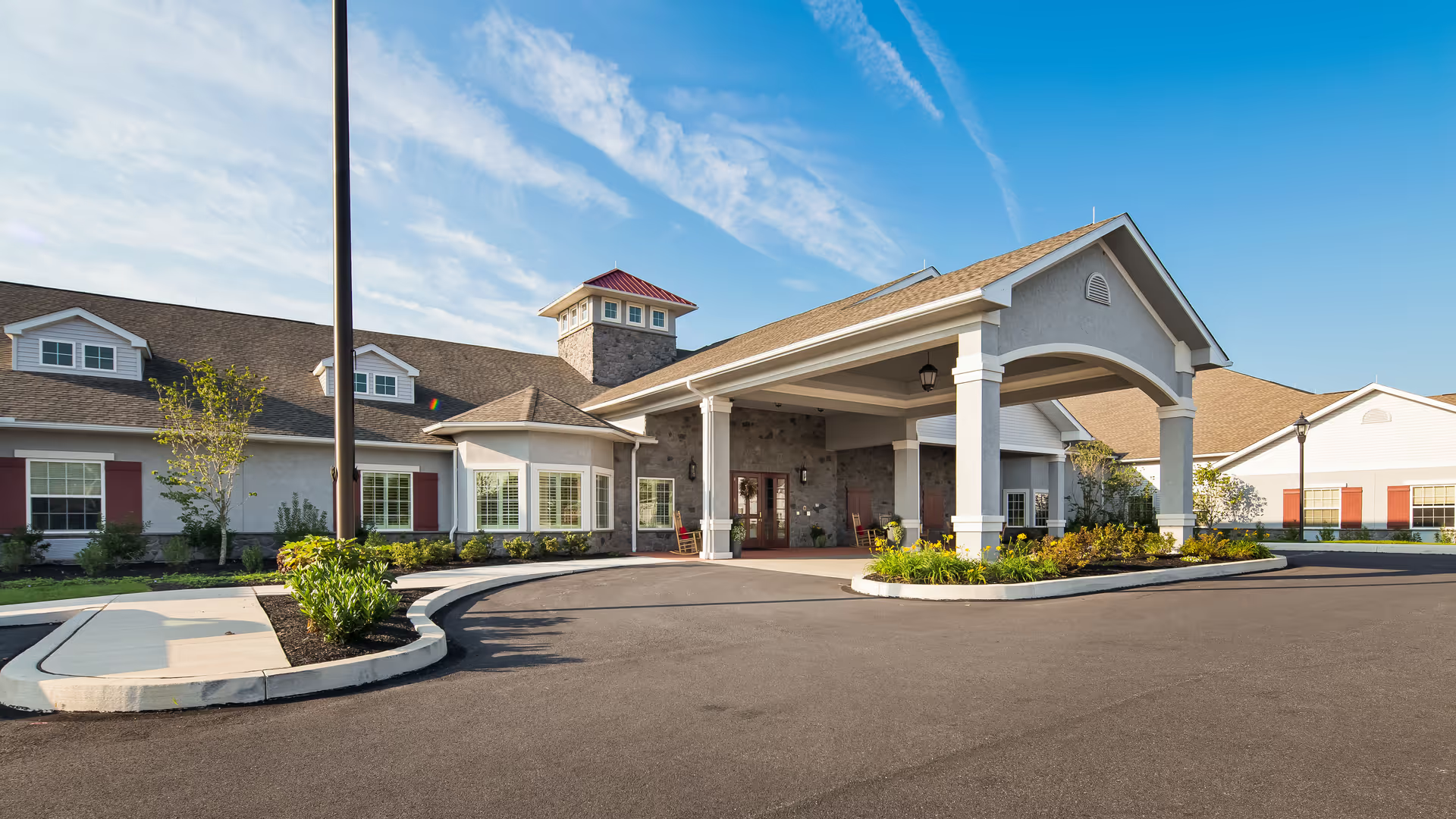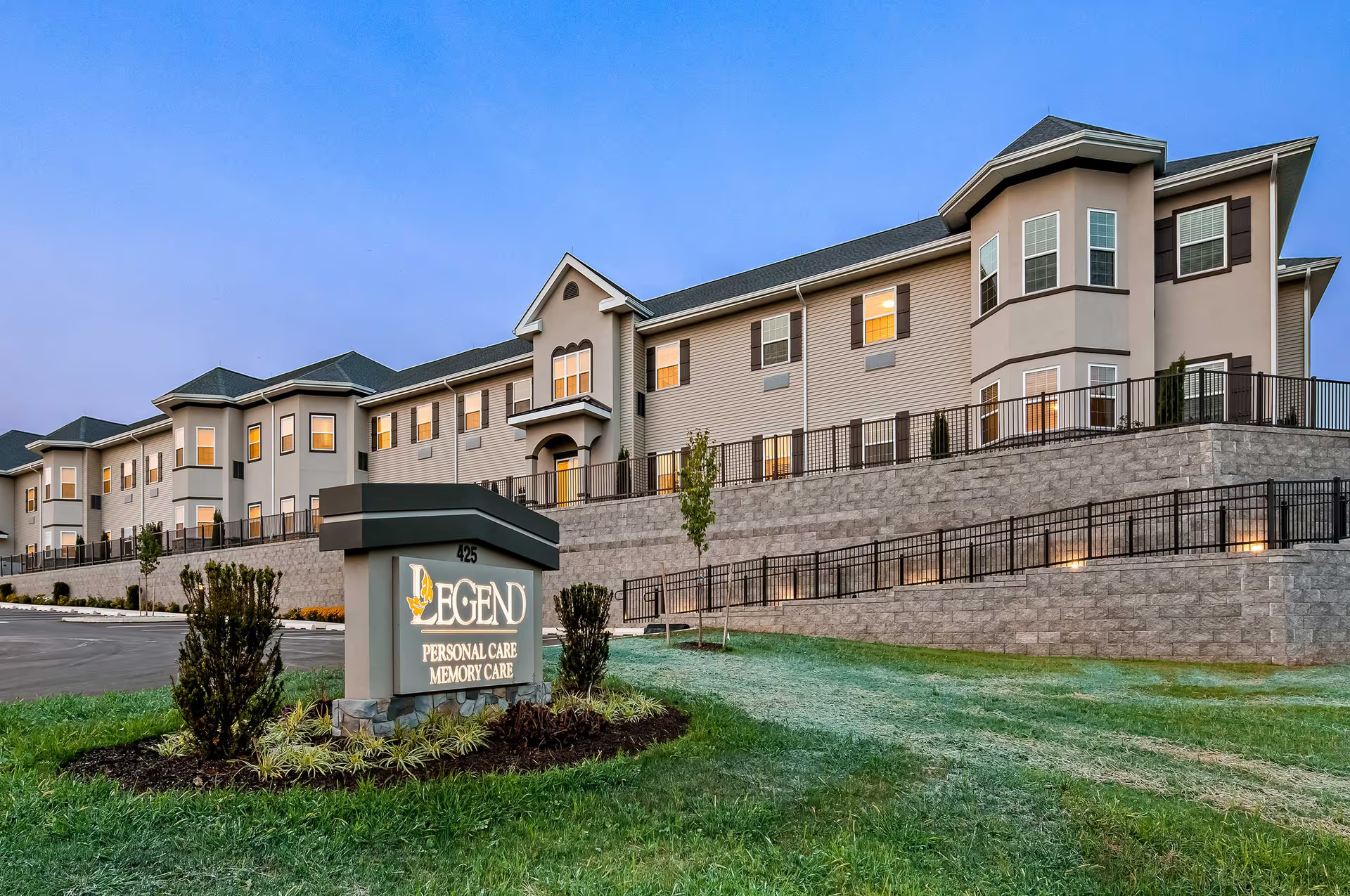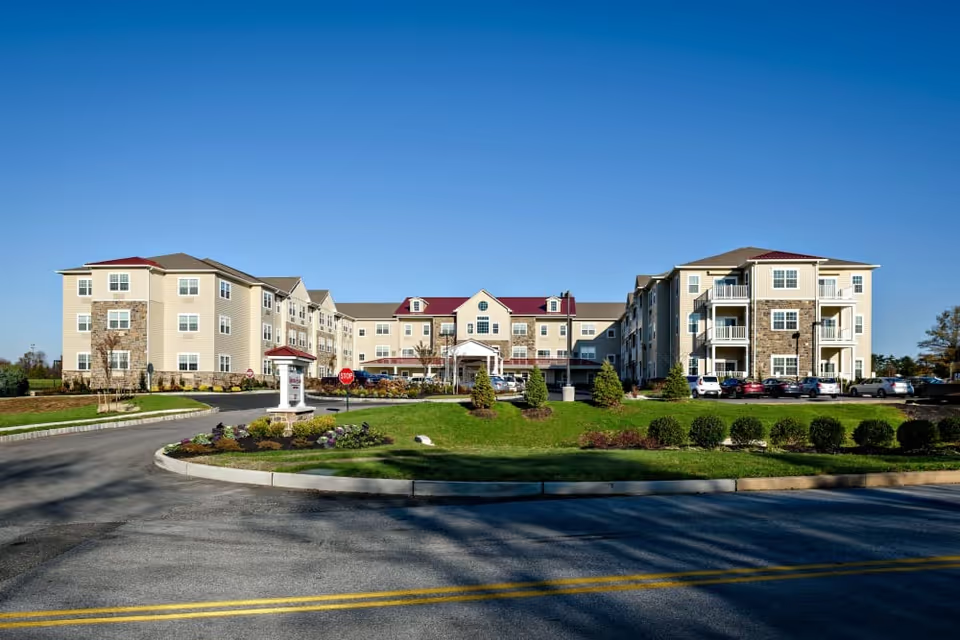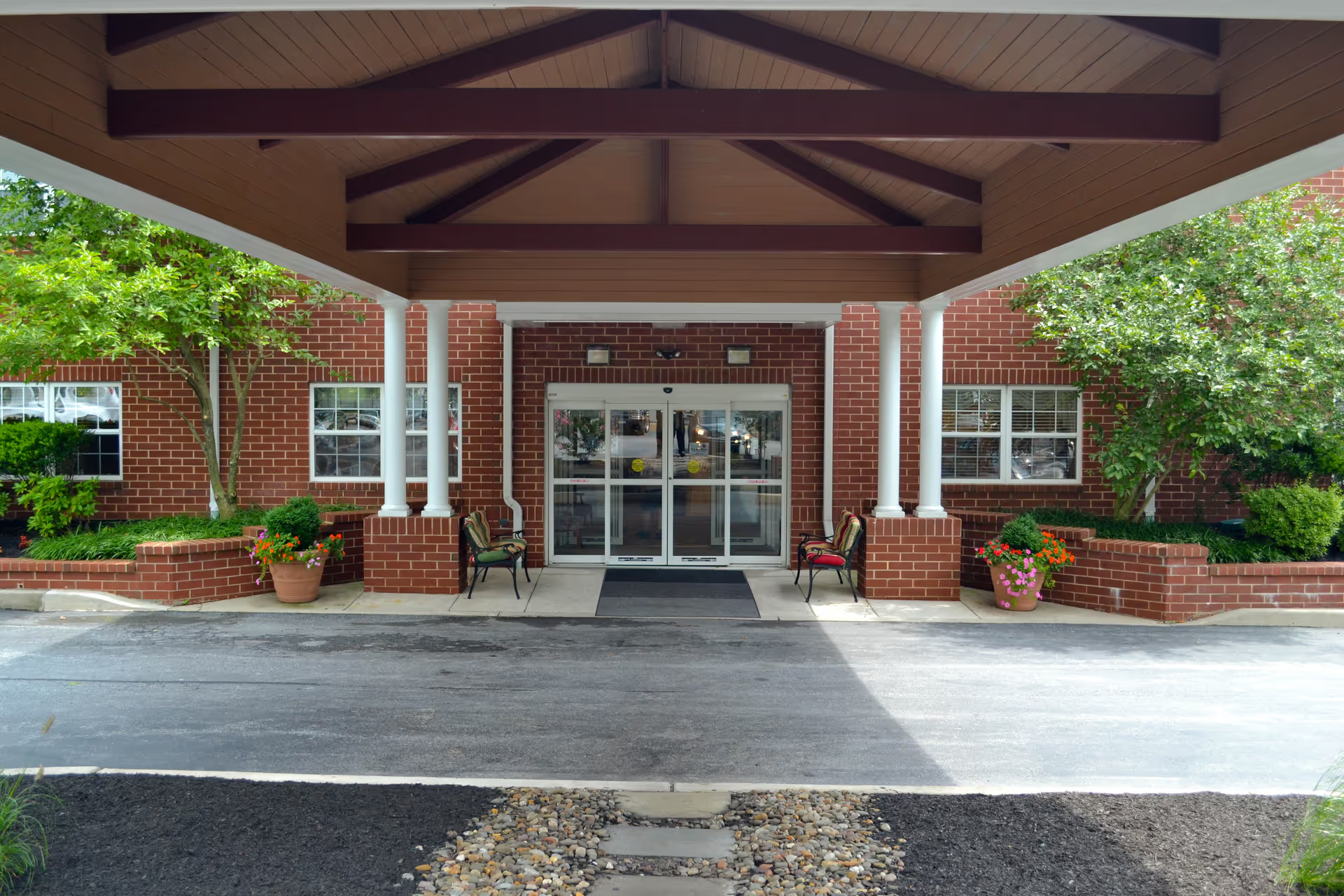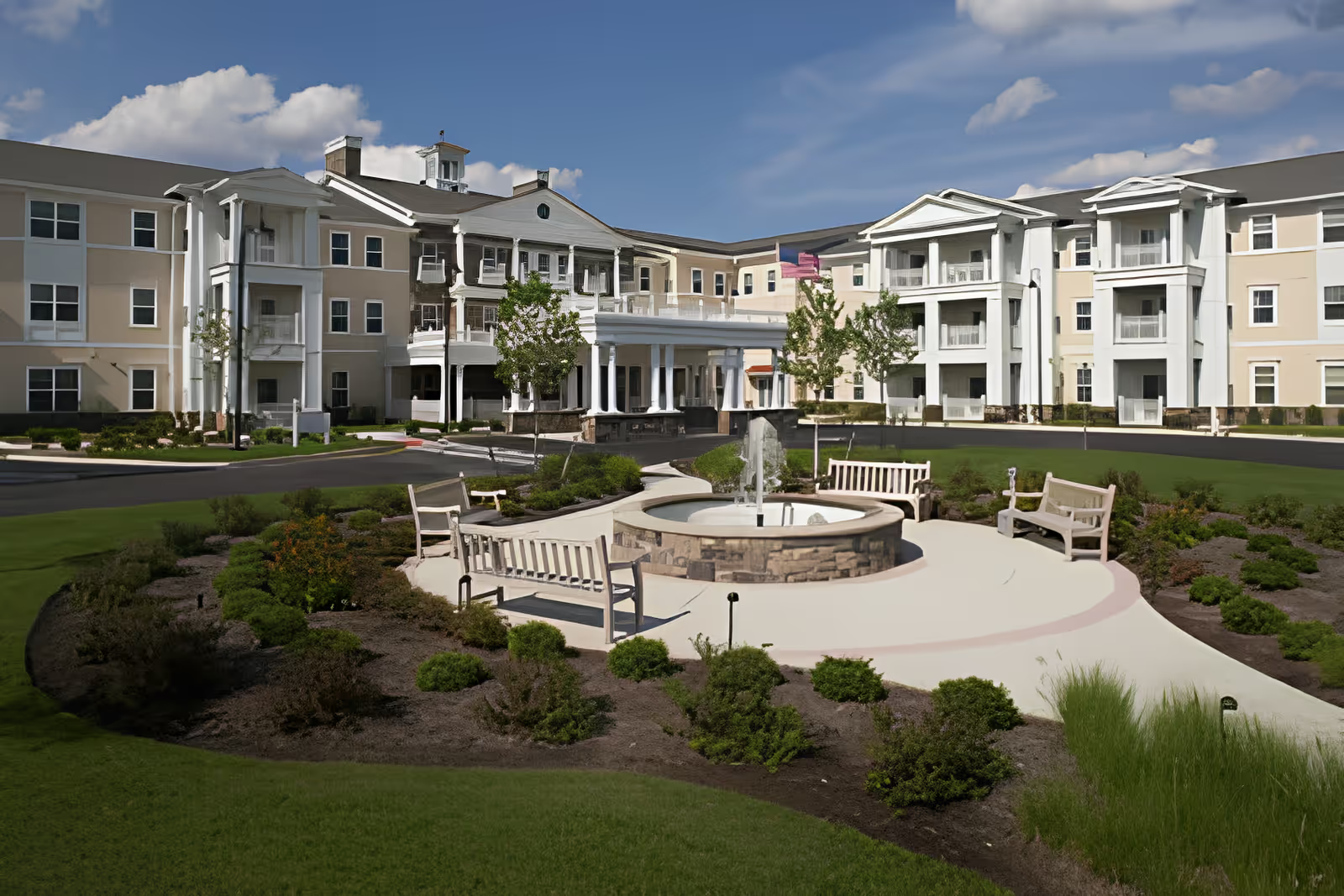Overall sentiment in the reviews is mixed but distinct: Arden Courts - ProMedica Memory Care Community (Towson) is frequently praised for its dementia specialization, thoughtfully designed physical environment, and strong activity programs, while repeatedly criticized for inconsistent clinical care, staffing shortages, and serious medication and safety issues. Many families describe a warm, homelike atmosphere with an outstanding outdoor garden, enclosed walking paths, and a secure layout that supports safe wandering. Multiple reviewers highlight excellent, engaging activities tailored to residents with memory loss, often naming the activities director and reporting that residents appear happier and more engaged there. The dining program and on-site chef receive repeated positive mention for nutritious, dementia-appropriate meals served on real dishes. Physical plant strengths include recent remodeling, barrier-free design, private rooms with en-suite bathrooms, bright common areas, and attentive maintenance and housekeeping in many accounts.
Care quality reviews are polarized. A significant number of families report compassionate, patient, and personalized care: staff who know residents' names, smooth hospice transitions, helpful coordination with therapists and on-site doctors, and dignity in end-of-life care. Several reviewers call out specific administrators (for example, Anne, Tracy, and Kris Martinson) as responsive, communicative, and family advocates. However, an equally large and serious set of reports raise concerns about clinical reliability: medication errors (including medications found in a resident's bed or clothing and multiple versions of the same med), overmedication, missed medications, and inadequate clinician communication with doctors and psychiatrists. There are multiple mentions of falls and injuries (one reviewer reported a broken collarbone), missed showers and grooming, weight loss, dehydration, UTIs, and other negative clinical outcomes described by families.
Staffing and training emerge as a central theme driving both praise and concern. Positive reviews emphasize caring floor staff and engaged caregivers; negative reviews describe chronic understaffing, high turnover, aides who appear untrained in dementia care, and unprofessional behaviors such as cell phone use and casual dress. Several reviewers felt there were not enough staff for the resident census (roughly ~30 residents mentioned in one summary), leading families to hire private duty caregivers or feel the respite stays were rushed. The staffing shortfall also reportedly affects frequency of personal care (infrequent showers, missed grooming) and timely responses to resident needs. Training gaps specific to dementia care—caregivers described as "clueless" about how to manage memory-care behaviors—are a recurrent concern.
Safety, regulatory, and operational issues are among the most serious complaints. Some reviewers reported state survey infractions and questioned licensing and oversight; COVID-19 deaths at the facility were noted by multiple reviewers. There are allegations across the summaries of neglectful outcomes such as dehydration, malnutrition, infections, and episodes that families characterized as abuse or neglect. These reports coexist with many families' reassurance about safety from wandering due to secure doors and thoughtful design, but the clinical safety inconsistencies (medication handling and falls) are notable and should prompt prospective families to verify current survey results and ask for concrete policies and incident histories.
Communication, management, and billing show a mixed record. Several families praise specific administrators for accessibility, regular updates, and advocacy, and many reviewers felt welcomed and included by management during transitions. Conversely, others report poor communication—minimal updates except for adverse events, difficulty reaching staff, delayed caregiver meetings, and misrepresentation of pricing (large upfront administration fees, quoted prices not matching final bills, and reports of costs increasing). Practical issues like mislisting on Google (incorrect Medicaid acceptance information) and weekend limitations on maintenance or staff availability were also noted.
Activities, social programming, and the environment are consistently highlighted as strengths. The activities staff is repeatedly described as creative, constant, and varied—offering singing, quizzes, outings, seasonal meals and celebrations, and programs that promote togetherness. The facility layout is repeatedly commended for being non-institutional, village-like, and supportive of independence while remaining secure. Some limitations mentioned include activities that could be more male-oriented and fewer options tied to the limitations intrinsic to a memory-care population. Physical limitations of rooms (small size, limited in-room TV) and occasional cleanliness issues in specific areas (some shower rooms, occasional room cleanliness complaints) appear in a minority of reports.
Cost and suitability: Many reviewers note that Arden Courts is expensive and likely unaffordable for some families; there are repeated mentions of large upfront fees and monthly charges. Several families observed that the community is specifically designed for memory care and thus not appropriate for people who do not yet require that level of supervision. There were also scattered operational complaints including bedbug allegations, billing disputes, and staff payroll or management issues reported by former employees, which prospective families should probe further.
Recommendation guidance based on these reviews: Arden Courts offers many features desirable for memory care—secure design, exceptional outdoor spaces, strong activities, and, in many cases, compassionate staff and effective leadership. However, the volume and severity of reports about staffing inadequacies, medication errors, falls, and regulatory concerns mean prospective families should perform careful due diligence. Recommended steps include touring the facility multiple times (including mealtimes and activity periods), asking for current state survey reports and corrective action plans, requesting staffing ratios and training protocols specific to dementia care, inquiring about medication management processes and incident histories, clarifying all fees and billing practices in writing, and checking references from current resident families. This mixed pattern suggests Arden Courts can be an excellent fit when staffing and clinical management are functioning well, but there are tangible risks and reported incidents that warrant careful questioning before placement.
